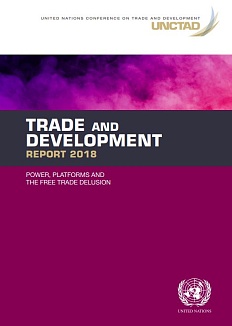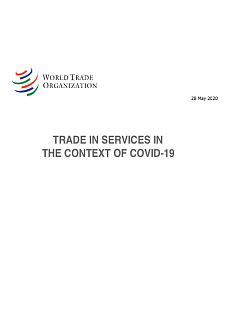We live in an era of digital transformations. Digital technologies cause dramatic shifts in our lives, studies, work and leisure. They allow to think originally, to plan and make choices differently. They open up new opportunities at all levels of state and public development but at the same time increase the risks and threats to the existing business models. The policy-making bodies have to constantly look for the ways to manage the economic and social shifts caused by the digital transformation.
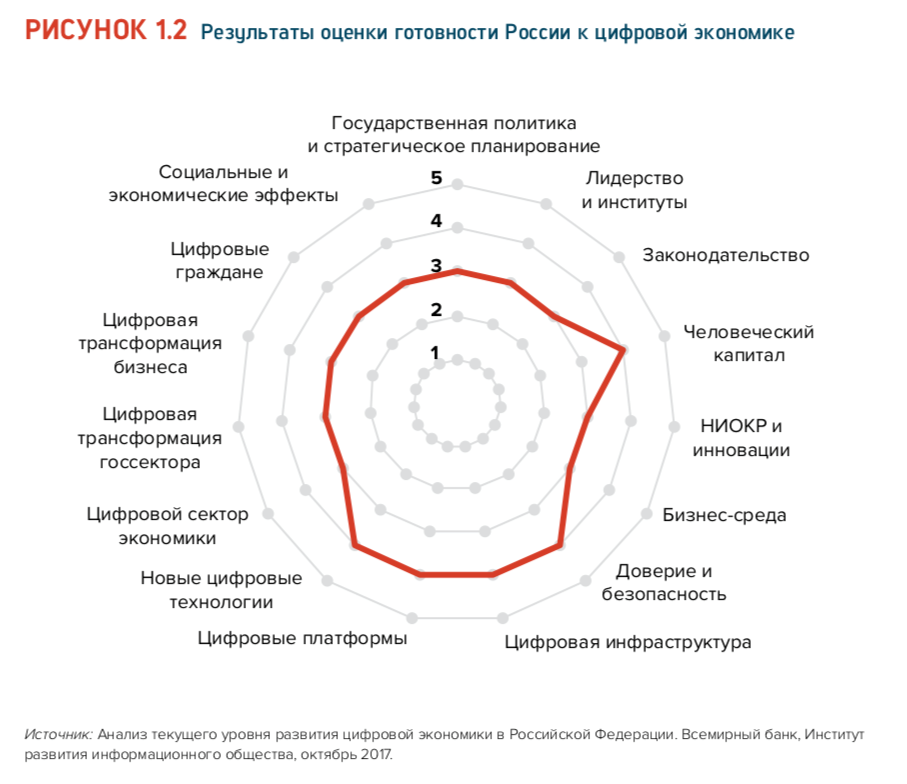
To ensure the success of digital transformation it is vital to take consequent and continual steps in several directions. These steps are essential both nationwide and on state, municipal and industrial levels.
First of all, in order to prepare to the fundamental changes which
are brought by the arising technologies and to disclose the advantages of the digital creation the policy-making bodies of Russia and everywhere else should upgrade the non-digital foundations of the economy, directing management attention to the role of digital transformation in achieving national economic development goals; to provide flexibility in making changes in legislation necessary to adapt to the rapidly changing demands of the digital economy; to expand the rights and capabilities of the ecosystem which includes public authorities, institutions and organizations responsible for promoting digital transformation and smoothing the disruptive effects of arising technologies.
Effective project management is also important. It is necessary to develop and implement detailed road maps in accordance with key strategic goals and to prioritize project portfolios in order to identify areas where «quick wins» are possible, as well as to identify long-term strategic initiatives. In order to accelerate the pace of the transformation we should implement new management frameworks which could get main interested parties involved in the process of the decision-making and management.
It is essential to set the budgets and financing mechanisms tightly. The potential dividends for the creation of the competitive digital economy are very high and in order to accelerate the pace of digital transformation, it is imperative to get high-ranking leaders focused on the rigorous policies adaptation and its flawless implementation.The potential dividends for the creation of the competitive digital economy are very high and in order to accelerate the pace of digital transformation, it is imperative to get high-ranking leaders focused on the rigorous policies adaptation аnd its flawless implementation.
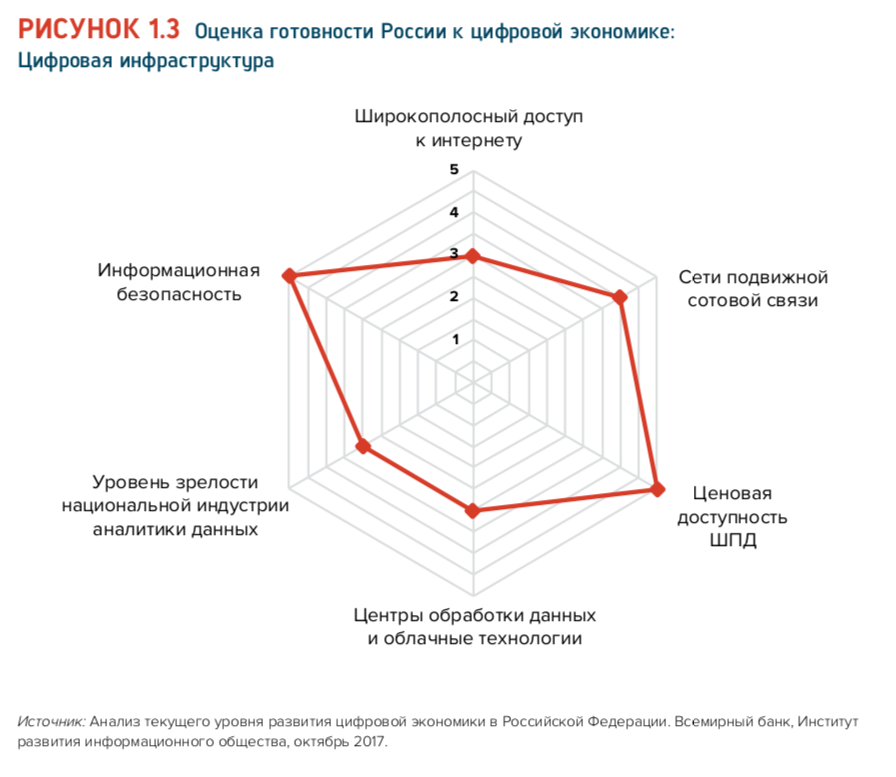
The government needs to continue to improve digital foundations through proactive investments in a scalable, smart and secure infrastructure that can proactively explode digital growth. It is necessary to point down the necessity to expand the digital transformation ecosystem both horizontally in all sectors of the economy nationwide and on regional and municipal levels and vertically, at all levels of the government control, industry and service sectors levels.
Weak interaction between the government, the private sector and the scientific and educational community negatively affects the pace of digital transformation, the implementation of key government programs, the introduction of new technologies
and business models, and the ability to proactively respond to technological and economic disruptions and crises, as well as to the speed of innovation. A strong, efficient and effective ecosystem is the ground for the technological breakthrough that the Russian leadership is seeking to accomplish.
It is essential to develop digital skills. Despite the traditional advantages in theoretical science the Russian education system does not have enough flexibility to meet the requirements of digital transformation in all areas of the economy. It is essential to upgrade the ecosystem of education and mentoring starting from the day-care and ending up with the higher education institutions including coordination between facilities and educational institutions in the higher education sector and R&D. There is a need in investments in the educational platforms in order to achieve rapid development of the digital economy skills on nationwide, training and advanced training of the existing workforce with a focus on the lifelong learning oriented educational model. Policymakers should also focus on preventing the «brain drain», attracting and retaining talented specialists, as well as attracting the best in their field and the most capable specialists and returning them to the country.
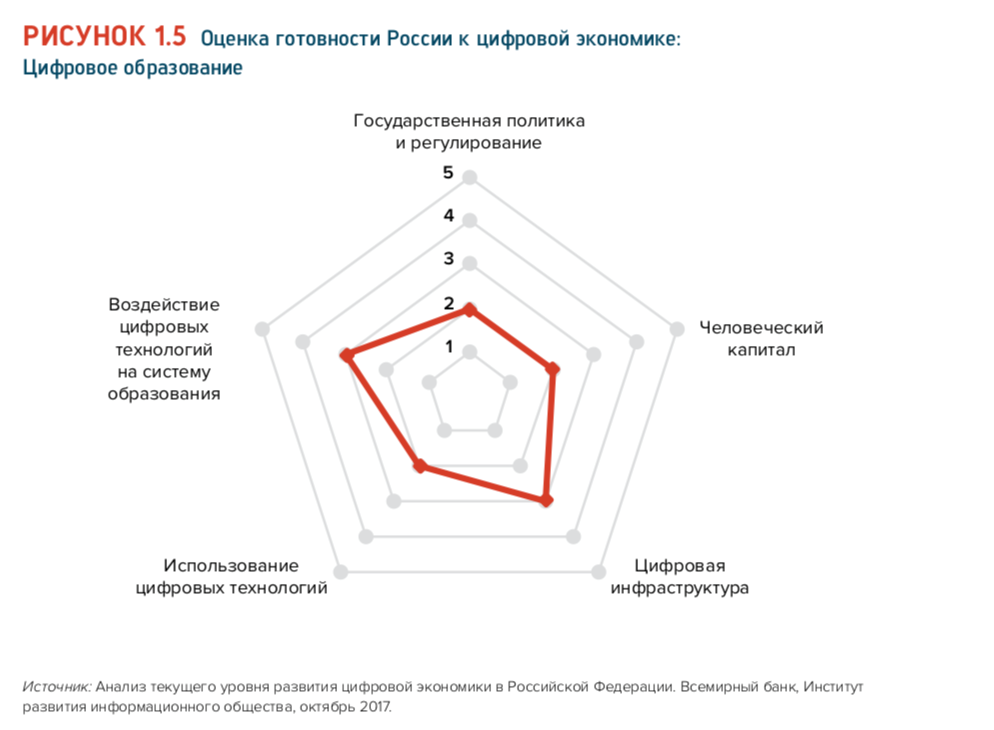
Директивным органам следует также сосредоточить внимание на предотвращении «утечки мозгов», привлечении и удержании талантливых специалистов, а также возвращении в страну и привлечении лучших в своей̆ области и наиболее способных специалистов.
And finally, cultural transformation is needed. Since digital transformation is breaking down barriers between industries, regions, organizations, and individuals, it challenges the traditional centralized hierarchical governance structures and requires a new culture of innovation. The key elements of such a culture are open communication and knowledge-sharing, horizontal collaboration between groups and joint creativity, active experimentation and problem solving, risk acceptance and the ability to make opportunities out of failures. Specific initiatives aimed at promoting the culture of open innovation should be of high priority for Russian policy-making authorities.
In terms of priorities, it is important to maintain the attention of top executives on the priority of digital transformation at the country level
as an important strategic task of national development in order to constantly increase the driving force of transformations, focus on solving the tasks outlined in the May decree of the President of the Russian Federation in 2018, and ensure the achievement of goals set in the program «Digital economy of the Russian Federation» until 2025, in the Digital agenda of the EAEU and other important goals and objectives embodied in the relevant documents.
It is necessary to accelerate the pace of digital transformation of traditional industry, where the use of ICT and emerging digital technologies can bring forth significant dividends at all levels of the value chain, increasing the competitiveness of key industries therewith.
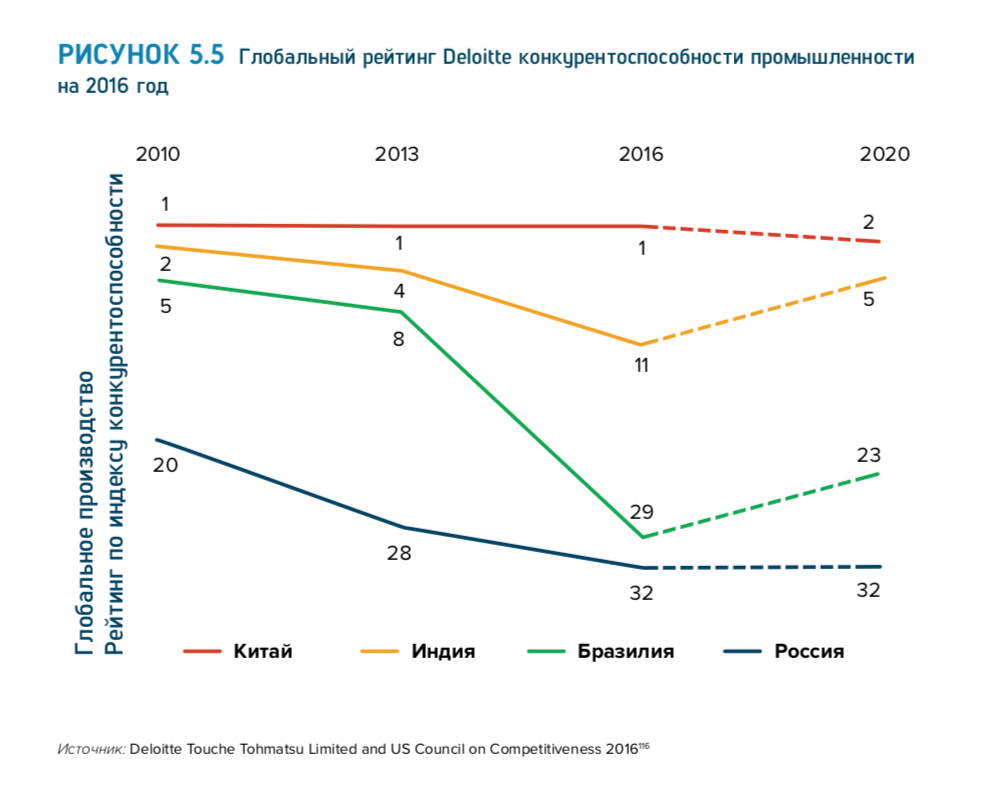
Specific policy measures should be taken to encourage innovation and entrepreneurship within the framework of digital transformation. Sustainable innovation requires close coordination between the government, the private sector, and the academic community. Not only should the State support fundamental research and promote the development of world-class R&D centers in Russia, but also implement policies to encourage the commercialization of R&D results, and the private sector efforts should be directed towards developing market entry strategies and creating new business models. It is required to further develop an effective regulatory system that encourages innovation, with particular attention to the protection of intellectual property rights and patent regulation.
The government should consider ways of using digital technologies to eliminate inequalities in the development of regions and municipalities in Russia, giving less developed regions the opportunity to effectively implement the Digital Economy of the Russian Federation program locally. A number of measures are required to stimulate demand for innovation from large regional state-owned enterprises, as well as to develop digital skills, train senior executives, create PPPs and regional innovation clusters in the regions, develop local markets and finance facilities. Special attention should be paid to the development of digital infrastructure in remote and rural areas, as well as raising awareness of the rural population about the benefits of digital services.
Finally, policies should be aimed at developing a receptive domestic market that is interested in the processes and the results of the digital transformation. This includes implementing of digital transformation into large industrial enterprises and top-down state-owned corporations, through the existing vertical management structures, in order to increase the demand for digital technologies; specific steps aimed to improve the business climate, targeted market development initiatives to increase demand for innovation at a regional level, as well as preferences for government procurement of technology and incentives for market players to purchase throughout the country and locally. Initiatives to strengthen public confidence in the digital economy are also of vital importance.
Consequently, the commitment of the Russian leadership to the digital transformation as a national priority, complemented by the implementation of effective policies in key sectors of the economy, focused on achieving specific results, will allow the country to join the group of digital transformation leaders, start a technological breakthrough and receive appropriate economic and social dividends.





